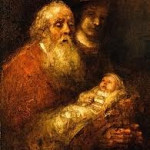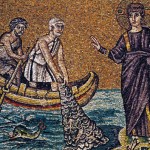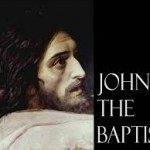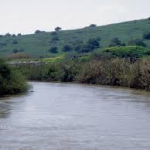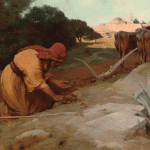Sixth Sunday in Ordinary Time – Cycle A
Reflecting on Matthew 5: 17-37
Now that the Jaqueline Kennedy interview tapes have been released, we know the fascinating advice her husband gave her about managing the hostility she felt toward some of the foreign guests at the White House. He said, “Jackie, you can’t think these insulting things about people, even in private, because someday those thoughts will come slipping out of your mouth at some state dinner, and next thing you know we’ll be at war with Russia.”
How true. Maybe that’s what Jesus meant when he said that insulting each other is like committing a murder. Unkind words are not easily forgotten, regardless of how much we assure the contrite friend that all is forgiven. The general trajectory of hurtful words is hurt feelings, which invariably lead the offended party to get revenge in some unconscious way. We have no real cultural model in which to say, “You really hurt me last month, and I thought I could forgive you, but I find that I am apprehensive and hostile towards you now.” True forgiveness is hard work, and probably takes longer than we’d hoped.
So, the way to avoid all this is to go on a fast from thinking uncharitable things about people. This is harder to do today than ever because creatively insulting people is the national media pastime, especially in election years, and when is it not an election year? Fast from imagining some hilarious barb you would sling at someone, and chances are you never will sling that barb, which will keep them from having to come at you someday with a hatchet.
What experience have you had with the “murder” that hurtful words can cause?


